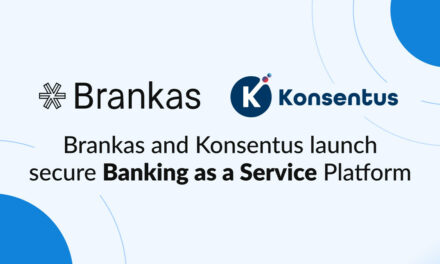 As part of TransUnions “Five questions on FinTech” series, TransUnion’s John Wirth sat down with Paul Zhang, chief technology officer and co-founder of Avant, to get his point of view on key factors affecting FinTechs and what they should consider as they evolve, along with his perspective on the future of data and analytics.
As part of TransUnions “Five questions on FinTech” series, TransUnion’s John Wirth sat down with Paul Zhang, chief technology officer and co-founder of Avant, to get his point of view on key factors affecting FinTechs and what they should consider as they evolve, along with his perspective on the future of data and analytics.
Q1: What is a key factor affecting the FinTech industry today?
Right now, investor confidence is a major focus. As a company, we provide very easy to use products that are good for the American consumer. The higher our investor confidence, the more we can continue to help fund additional loans and reach more consumers. I think it’s  important for us in the industry to take a step back and think about exactly why investors aren’t as confident in this market right now. We need to directly address issues, such as disclosures, regulatory compliance, all those pertinent things. I think we do a good job, but we have to take the next step forward and really knock it out of the park.
important for us in the industry to take a step back and think about exactly why investors aren’t as confident in this market right now. We need to directly address issues, such as disclosures, regulatory compliance, all those pertinent things. I think we do a good job, but we have to take the next step forward and really knock it out of the park.
We need to directly address issues, such as disclosures, regulatory compliance, all those pertinent things.
Q2: What are some of the critical milestones for the FinTech industry?
As the industry matures, one of the critical milestones pertains to establishing a history in the industry. From the investor’s point of view, knowing credit history and credit performance is necessary for them to invest with confidence. And not only that, but establishing the regulatory and compliance frameworks, and the disclosures necessary for them to do so as companies of reputation.
From the consumer side, FinTechs need to continue offering innovative products that help people work through their everyday lives. A simple, transparent product that really suits and benefits their personal situation.
Q3: What should FinTechs consider as they evolve their products?
As the economy potentially shifts downward, FinTech companies need to focus on customer experience and credit quality. As innovative companies, we want to create the best possible experience for consumers, which means offering products that differentiate us from traditional financial lenders.
From the quality side, it’s important to look at innovative data analytics and machine-learning protocols to target consumers believed to be the best credit risks. Even if that means considering non-traditional metrics. I think that’s what the FinTech industry has been built upon—taking traditional metrics and using and supporting alternative data. Gaining a clearer point of view by accessing real-time information, you see up-to-date changes in their circumstances. We can find customers that traditional financial institutions may not typically lend to, but who are good credit risks—and give them a nice, competitive product. I think it’s important that we’re diligent stewards of credit quality, in order to ensure we’re doing our jobs.
Q4: What’s your perspective on the future of data and analytics?
One of the major things that has changed with data analytics and insights recently has been the proliferation of technology. Cloud data providers and cloud services have really allowed startups and FinTech providers to leverage cutting-edge technology at more affordable prices.
That’s been like a perfect storm of advances in technology – not necessarily targeted toward FinTechs, but all around the technology sphere, yet you can leverage it by applying it specifically to FinTech. That’s allowed us to use more and more cutting-edge data analytics and machine-learning techniques in order to price our customers.
Q5: What are the next steps in data decisioning and analytics?
I think the next step in data decisioning and analytics is using non-traditional, potentially social data, in a way that derives both value to the consumer, as well as businesses. We should be able to leverage data in a manner that’s compliant and safe for the consumer, but also gets us next-level insights into people who are underserved.
Another step is finding a flexible data partner. For example: Since our company’s inception, we’ve had a long business relationship with TransUnion. Outside of providing us really great data, they’ve shown great flexibility in regard to some outside of the box things we wanted to do. They were very willing to accommodate us in accomplishing our goals. I think that’s important as we build up this new FinTech environment, because there’s going to be a lot of work needed from both sides in order to enable that innovation.
Finally, we can’t forget that delivering the best products for consumers is of utmost importance. I think it’s easy to get lost while we’re navigating not only the FinTech arena, but also the traditional finance landscape. We start designing our products for other parties, rather than for the consumer. And at the end of the day, the best asset class, the best product for all parties involved, is one that serves the consumer the best.
Source: TransUnion Blog


























